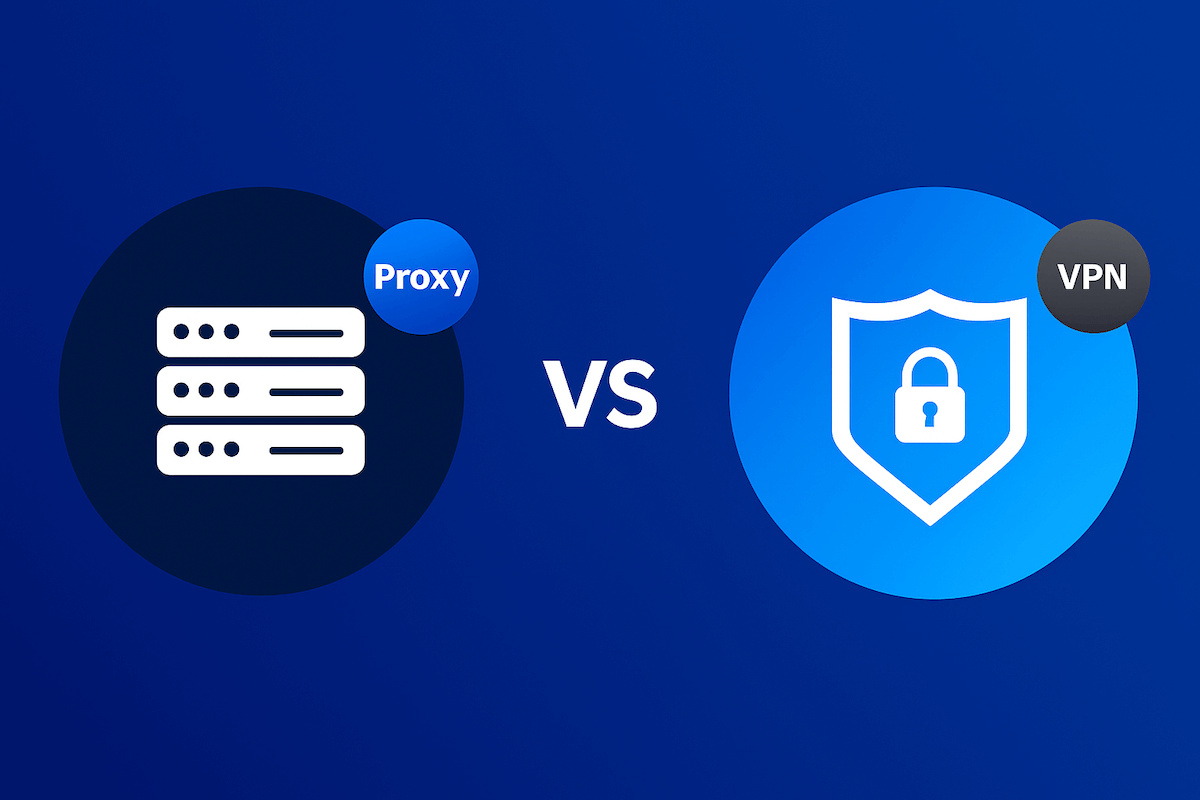What is a proxy server and how does it differ from a VPN

Today, the Internet is not only access to information but also a vast space for business, entertainment, and communication. However, users are concerned about issues of privacy, censorship, cyber threats, and local restrictions. Therefore, the demand is growing for tools that help protect personal data and bypass all possible types of blocking. The most popular solutions are VPN and proxy servers. At first glance, they are used for the same purpose, but their principles of operation, level of security, and additional functionality differ significantly. So which option is better to choose? What is the difference between VPN and proxy in practice?
What is a proxy server and how does it work
What is a proxy server? It is an intermediary between your device (computer, smartphone, server) and the Internet. When it is used, all requests first go to the proxy server, where they are processed and then forwarded further. The response from the site also passes through the proxy. The general principle of operation is as follows:
- the user opens a browser on their computer;
- sends a request to open a website or access an online service;
- the request is sent to the proxy server;
- the proxy sends the request, but already on its own behalf;
- the site responds and sends the data to the proxy;
- the proxy forwards the response to the user.
Thus, the user’s real IP address remains hidden. But this is not the only function of a proxy server — it can also be used to analyze traffic, apply content filtering, use caching to increase access speed and data processing, and balance the load on the network being used.
It should also be noted that there are several types of proxies, for example: HTTP (works only with web traffic), SOCKS (works with different types of data), and transparent (does not hide IP, used for filtering and caching).
What is a VPN and how does it work
VPN is a similar technology, but when using it, an encrypted tunnel is created between the user and the VPN server. Absolutely all data sent from the device passes through it. The key features of VPN are:
- data encryption is used;
- IP address is hidden;
- technologies are applied to protect traffic from third-party access.
What are the key differences between VPN and proxy? In the first case, complex encryption is used (usually AES-256). This provides better traffic protection but slows down data exchange.
The difference between proxy and VPN
| Criterion | Proxy server | VPN |
| Encryption | Usually absent | Used |
| Application protection | Only those configured by the user | All traffic |
| Level of anonymity | Low or medium | High |
| Performance | Faster | Slower, though the difference is not very big |
| Use cases | Targeting, bypassing blocking, automation, traffic analysis, network testing | Ensuring comprehensive protection and privacy |
| Compatibility | Easy to configure | Usually requires a separate app or native support in the program used |
Summing up all the information: a proxy is like a mask, but without additional protection, while a VPN is a tunnel protected from unauthorized access.
The best VPN services to consider
There are now hundreds of VPN services on the market, but not all of them are equally reliable. Here are those that have been working for years, are in demand, and have a good reputation:
- NORD VPN — servers located in about 60 countries around the world;
- Express VPN — uses a no-logs policy, meaning no activity records are saved;
- Surf Shark — affordable price and unlimited connections from one account;
- Proton VPN — developers focus on providing the most reliable protection possible;
- CyberGhost — very user-friendly app, more than 9,000 servers worldwide.
When choosing a VPN, you should primarily focus on your needs, the required functionality, and proceed from that. However, using only these services is not mandatory. Moreover, it is not exactly known how they store customer data and to whom they may disclose it. You can rent a virtual server from any hosting provider and configure a proxy or VPN on it using specialized software. Modern software makes it easy to do this even for an unprepared user.
It should also be noted that there are many free VPN services, but using them is not entirely safe. Such services, as part of monetization, may collect user data, pass it on to third parties, or analyze it (all of this is stated in the user agreement).
Can VPN and proxy be used at the same time
Proxy and VPN can be used simultaneously. The number of intermediate points between the user and the remote site or service is not limited. Most often, proxy and VPN are used together for:
- providing even greater privacy;
- traffic distribution;
- accessing multiple geolocations at once.
The main disadvantage of using such infrastructure is reduced performance and data transfer speed. In most cases, a single VPN will be more than enough to perform user tasks.
So, what is the difference between VPN and proxy? The use of encryption and support for different types of traffic. VPN is a more universal tool, and it is usually the preferred option. Proxy is most often used for testing web applications or for traffic analysis.
Whichever option you choose, our company XServer provides virtual and dedicated server rental services, the performance of which will be more than sufficient to set up a proxy or VPN. Our advantages: flexible pricing policy, use of modern equipment, and ensuring a high level of cybersecurity. We also help with configuring your own proxy server or VPN, as well as choosing the optimal server. If you still have additional questions, contact us in any convenient way.